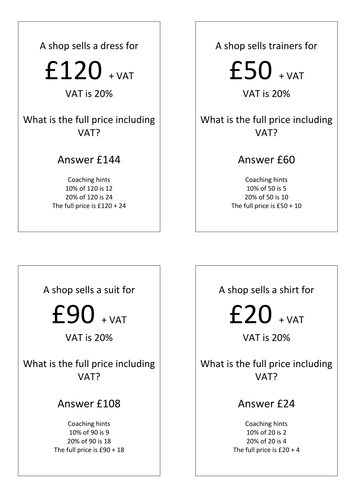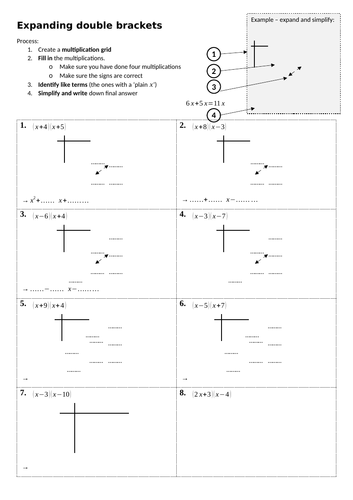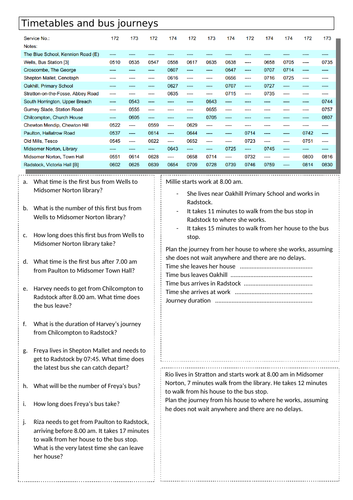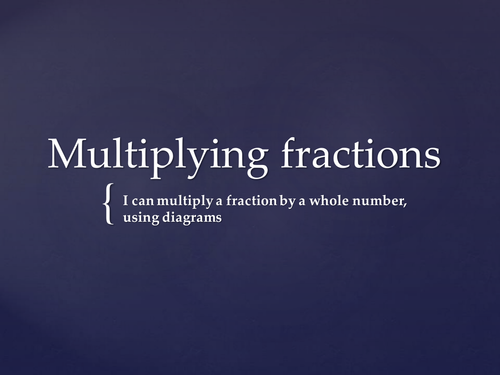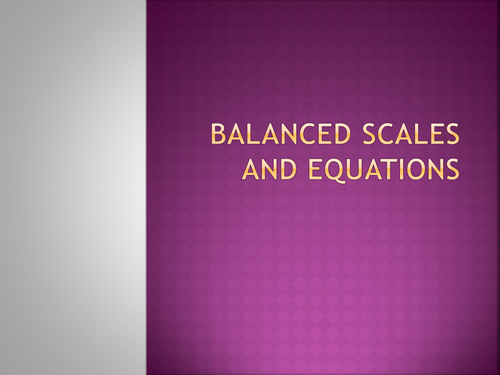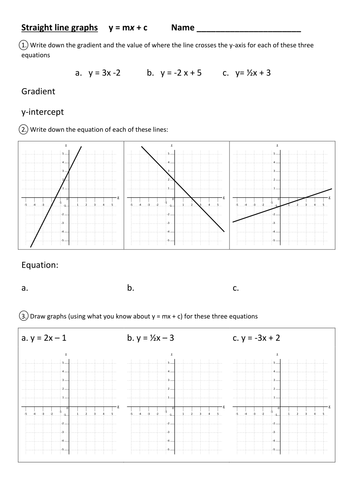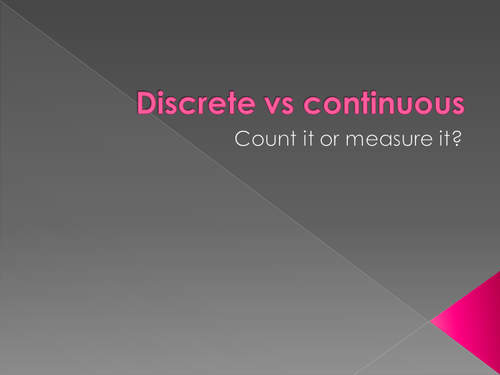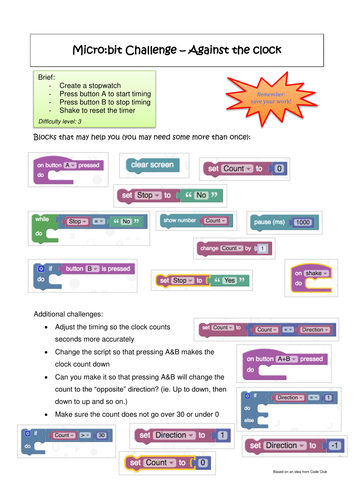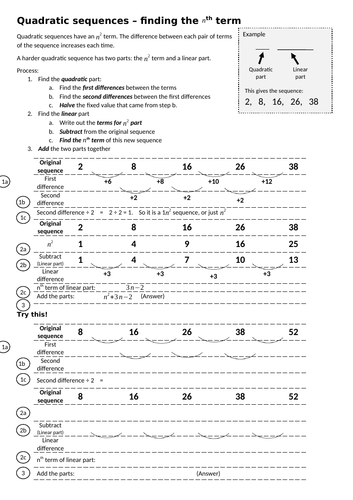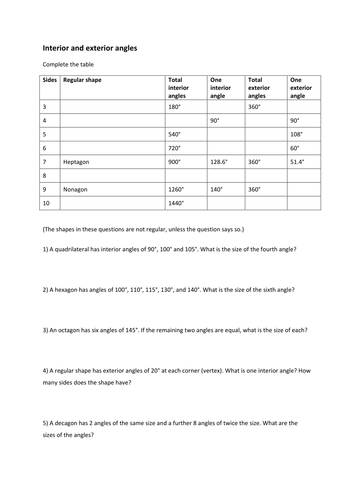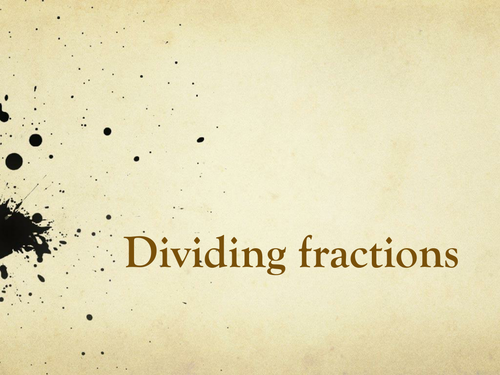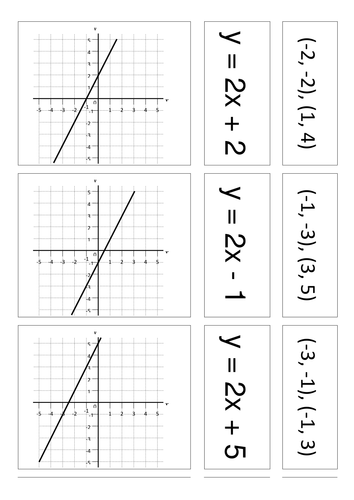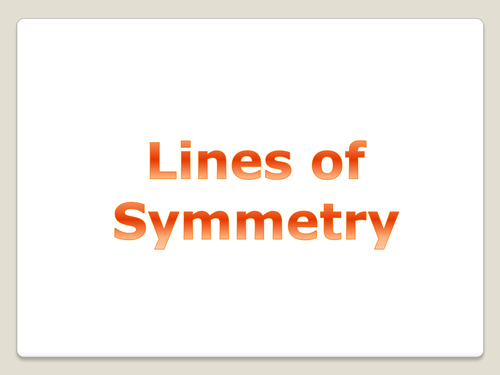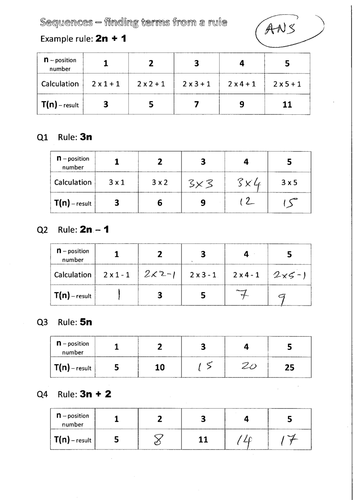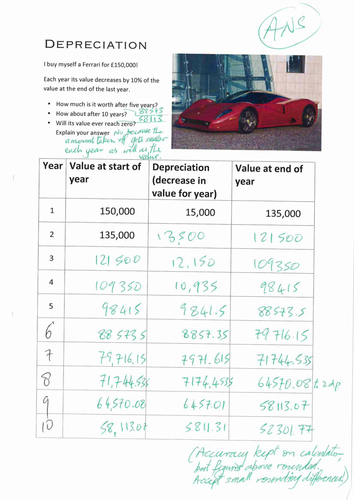
130Uploads
944k+Views
1089k+Downloads
All resources

Millionaire - operations with negatives - easy and hard versions
Classic Millionaire format. You may wish to add brackets around negative numbers, or otherwise reformat. Two versions - one with just add/subtract, other much harder with combinations of operations, squares/cubes etc.

Increase by 20% VAT QQT cards
16 percentage increase problems based on 20% VAT. Originally designed as Quiz-quiz-trade cards.
QQT - Everyone has a card. Form pairs. Person A asks Person B what the price of an item is after VAT increase. If Person B unsure, then Person A uses the coaching hints to help guide Person to the correct answer. The Person B repeats process on Person A. (The Quiz-Quiz part.) Now the pair exchange cards and go off to find new victims ;) (The Trade part).
[25/1/16. Grammar corrected!]

Expand double brackets - grid method - scaffolded
Worksheet with scaffolding that reduces for each question for expanding double brackets using a “grid multiplication” method.

Timetables and journeys
Worksheet on reading timetables (using a real bus timetable!) and planning journeys.

Perimeters of compound shapes with missing lengths
Various shapes (all but one rectilinear). All have missing lengths which need to be found. Two are in mixed units. Answers given in text box. (Delete before printing!)

Multiply fraction by a whole number
Visual demonstration/explanation of multiplying a fraction by a whole number using diagrams

Perimeter of compound shapes
Presentation and worksheet for middle ability Y8 students. (50 minute lesson.) Could be extended for students to calculate area as well.

Solving equations - balanced scales
Illustration of balanced scales for solving equations. 1 and 2-step. [21/1/15] Simple matching worksheet added for 1-step equations. [3/3/15] New version of presentation showing how to deal with the variable on both sides.
(12/7/16) Answers to worksheet uploaded

Summary worksheet for y=mx+c
Worksheet to complete topic (or as homework). Identify gradient/y-intercept from 3 equations and 3 graphs; sketch 3 graphs using y=mx+c.

Types of data - discrete vs continuous
Qualitative vs quantitative, discrete vs continuous. 1. Cards to sort into two groups - may think of any way to split. 2. Flipchart to structure lesson with links to short videos etc. 3. PowerPoint quiz - identify whether discrete or continuous.

BBC micro:bit challenges
A series of worksheets for the BBC micro:bit. Each has a task brief, suggested blocks to use and some extension suggestions. Each has been given a nominal difficulty level (based on my judgment).
The idea is not to give step-by-step instructions but present a set of relevant 'Lego blocks' to put together in the correct order. The blocks appear on the sheet approximately in order, but pupils will need to think about the order and may need to edit specific text or values. Where similar blocks are needed (such as strings for 'win' and 'lose'), they may only be shown once.
'Solutions 1' is a set of screenshots of my ideas on how to meet the briefs. It is not comprehensive; in particular, few of the more 'basic' solutions are shown. The solutions may not all be optimal. It is called 'Solutions 1' in the optimistic reckoning that more challenges may yet come!
Example-solutions.doc is NOT a document file. It is actually a Zip of tokenised files for working versions of the worksheets which can be loaded into the BBC's online editor. (To use, download the file and change the extension from DOC to ZIP.) Do bear in mind that there may be more efficient ways to achieve the same result (not least by converting from the Block Editor to Touch Develop). This is something that bright pupils might want to investigate, especially for harder tasks or to change how long images/text display on screen.
The files with CC in the name are based on activities suggested by Code Club, but using the Microsoft Block Editor (not Code Kingdoms JavaScript).
[24/5/16 solutions screenshots added.]

Indices, powers, roots
Fairly basic set of 15 Qs to be used with flashcards, whiteboards etc. Covers integers with indices and algebraic expressions. Add/subtract rules. Useful as revision or building up to add/sub simple powers.

Finding nth term of quadratic sequences
Explanation plus 4 scaffolded questions for how to find the nth term of a quadratic sequence. Answers on separate PDF.

Interior and exterior angles worksheet
Simple complete the table and answer a few questions exercise.
(12/7/16) Answers uploaded

Fractions - dividing explained
Dividing fraction by whole number and vice versa; divide v=fraction by fraction. Slide towards end to discuss results so far to try to elicit "invert and multiply" rule. Two examples with diagrams for each.

Mean - missing data and combined data
Find the missing number given mean and other numbers. Find mean of combined data sets.
Could use with mini-whiteboards as each step animated.
(16/6/14 added WALT and starter)

y=mx+c match cards
Nine sets of cards to match with graph, equation and pair of coordinates. 4 with same gradient, 3 same intercept, two negative gradient. 3/4/14 I've recently uploaded a PowerPoint on the same topic as a separate resource

Reflection and rotation symmetry
9 examples of each to show on whiteboard. Pupils write down (on personal whiteboard?) how many lines of symmetry/order of rotational symmetry. Then reveal answer on IWB. Rotations are 'animated'. Revision/plenary exercise?

Sequences - using/finding nth term - scaffolded
Use nth term rule and find nth term for linear expressions (2-sided worksheet for each). Worksheets scaffolded. First with missing terms and second to find multiplier and difference between that times table and the sequence given.
Not a lot different to exercises in books but hopefully attractive and less intimidating (limited number of questions!) for a lower ability group.
(12/7/16) Answers uploaded for finding terms worksheet

Depreciate my Ferrari!
Percentage increase and decrease. Table for depreciating a Ferrari over 5+ years. (10/2/14) Second worksheet added with similar compound interest example.


